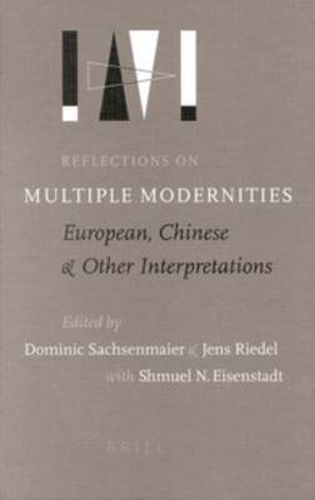Readings Newsletter
Become a Readings Member to make your shopping experience even easier.
Sign in or sign up for free!
You’re not far away from qualifying for FREE standard shipping within Australia
You’ve qualified for FREE standard shipping within Australia
The cart is loading…






This work explores an emerging paradigm in the social sciences, which assumes culturally specific forms of modernity. Modernization is thus no longer equated with homogenization. Scholars from history, sociology, area studies, and economics discuss the concept’s implications. The first part covers a range of theoretical questions arising from the new approach. Issues such as the common features of all modernities and their interrelation with regional particularities, the reasons for antinomies of modernity, and the preconditions for a peaceful coexistence of cultures are raised. The second and third parts deal with Europe and China as two specific encounters with modernity, the tensions between universalism and cultural identities, both in past and present. The fourth part analyzes how Multiple Modernities translates into formal and informal institutions of diverse capitalisms .
$9.00 standard shipping within Australia
FREE standard shipping within Australia for orders over $100.00
Express & International shipping calculated at checkout
Stock availability can be subject to change without notice. We recommend calling the shop or contacting our online team to check availability of low stock items. Please see our Shopping Online page for more details.
This work explores an emerging paradigm in the social sciences, which assumes culturally specific forms of modernity. Modernization is thus no longer equated with homogenization. Scholars from history, sociology, area studies, and economics discuss the concept’s implications. The first part covers a range of theoretical questions arising from the new approach. Issues such as the common features of all modernities and their interrelation with regional particularities, the reasons for antinomies of modernity, and the preconditions for a peaceful coexistence of cultures are raised. The second and third parts deal with Europe and China as two specific encounters with modernity, the tensions between universalism and cultural identities, both in past and present. The fourth part analyzes how Multiple Modernities translates into formal and informal institutions of diverse capitalisms .